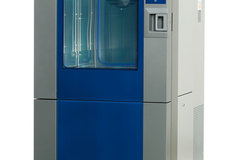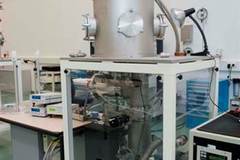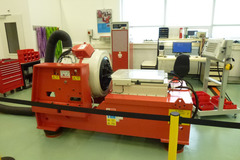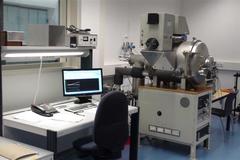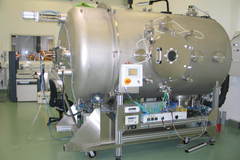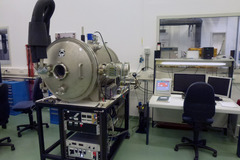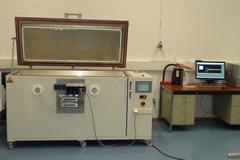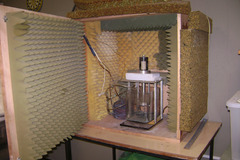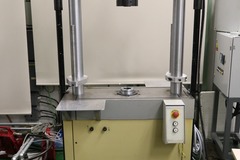For the development of lineless composite tanks for liquified gases, it is vital to characterize bulge and permeability properties even under cryogenic conditions.
Our vacuum isolated permeability setups can be cooled down to -253°C (20 K) and pressurized up to 20 bar. The helium leakage rate of specimens with a diameter of either about 140 mm or 450 mm can be determined. With costume made adapter rings even complex curved membranes can be tested.
Additional sensors can be applied to the specimen. For example, strain gauges are often attached on the surface to determine bulge properties.
We can also determine the flow rate of aerogel test samples and insolation material.
Applications:
• cryogenic permeability
• cryogenic flow rate
• temperature down to -253°C (20K) e.g. for liquid hydrogen applications or -196 (77K) for liquid nitrogen applications and -183°C (90K) for LNG and liquid oxygen applications
• helium leakage rate through CFRP membranes
• pressure up to 20 bar
• bulge characteristics
Device under test:
• Composite membranes
• CFRP
• GFRP
• aerogel samples and insolation material
• flat and complex curved membranes
• diameter of either 140 mm or greater than 450 mm

